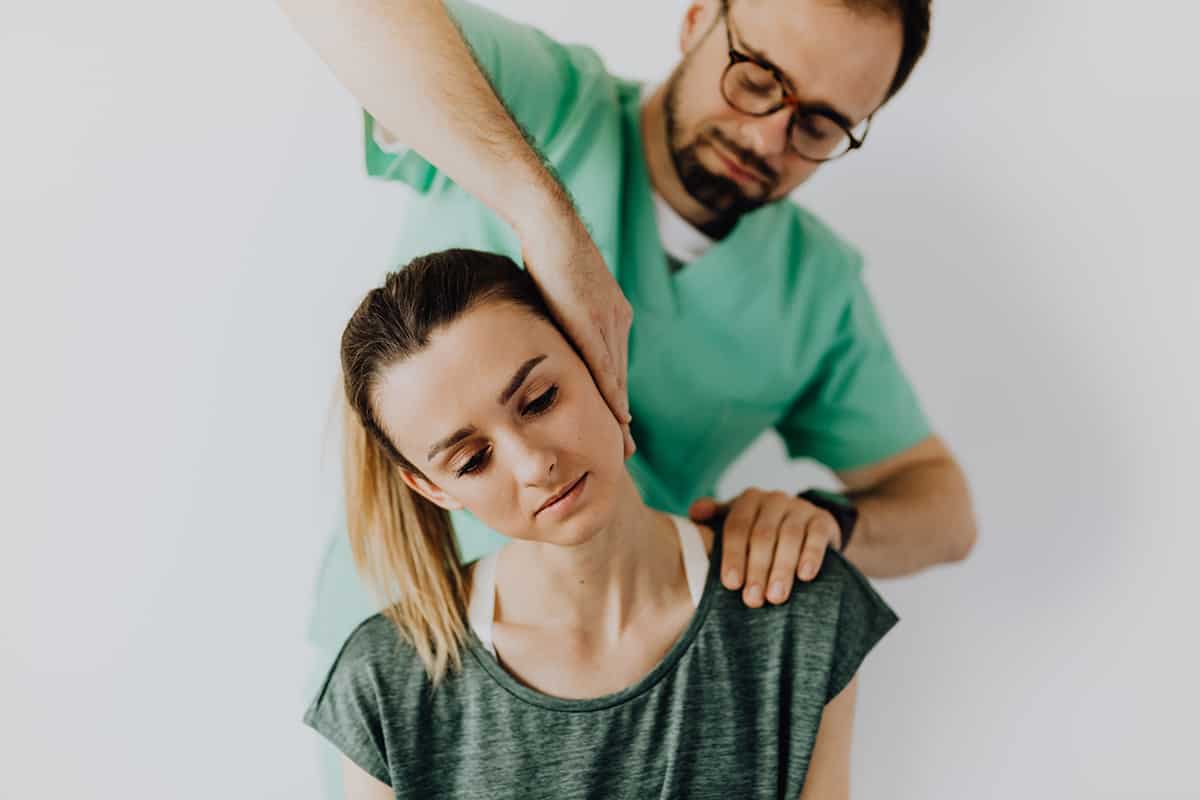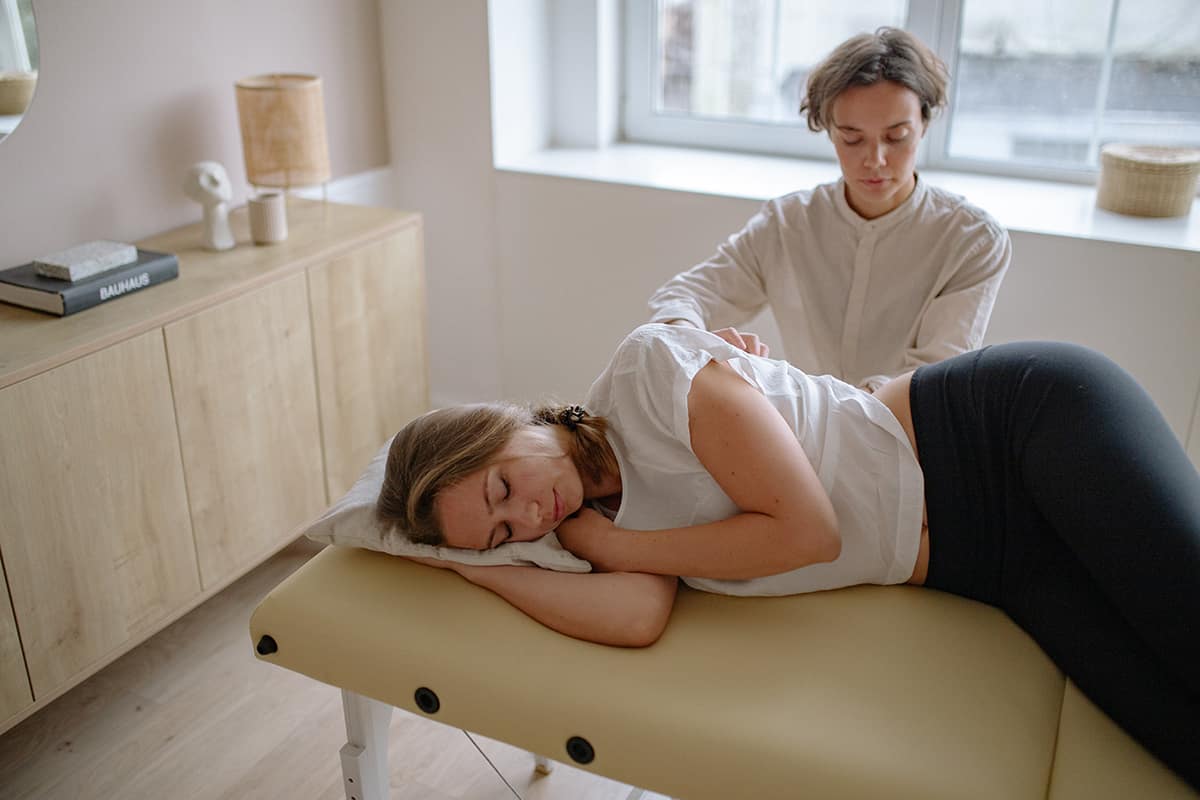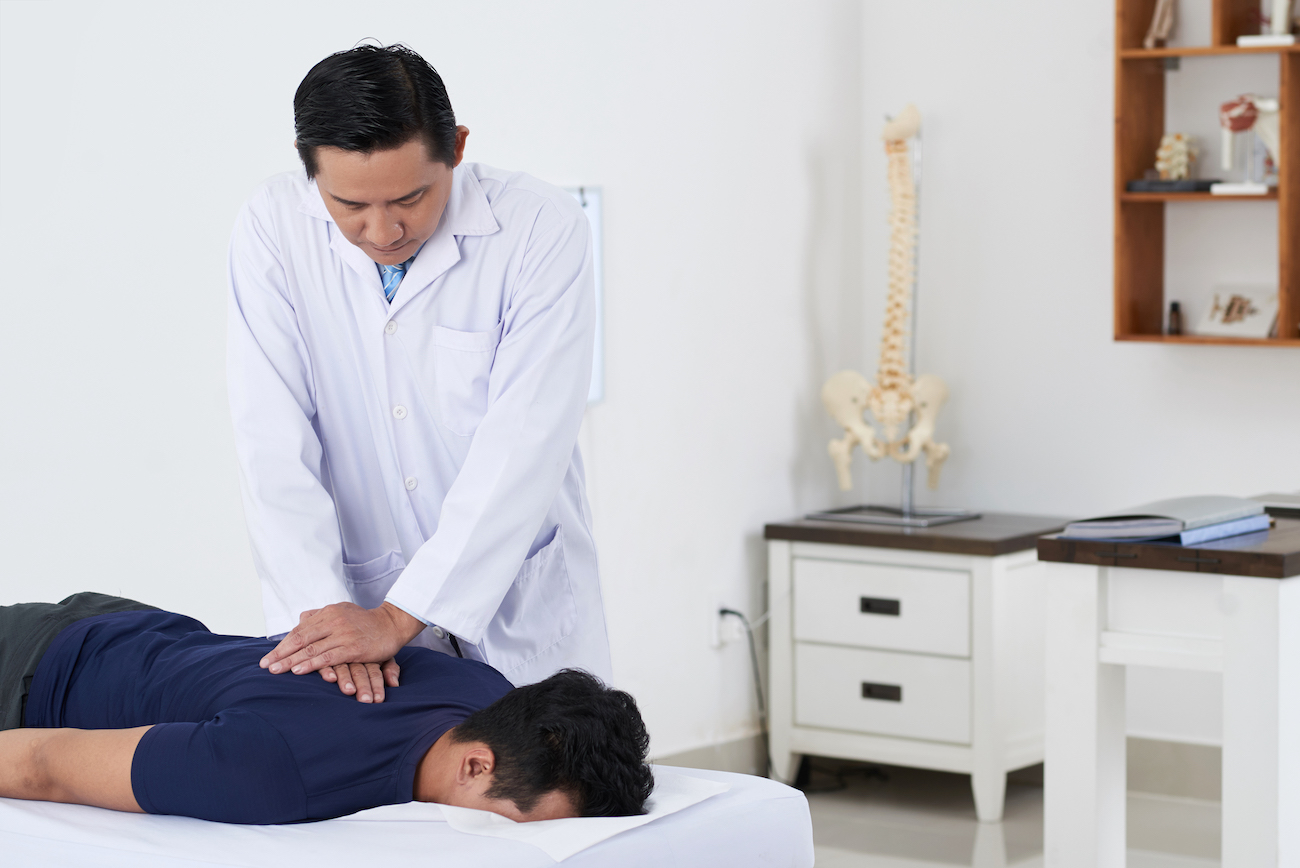Reasons for Back Pain During Your Period
Each month when I’m about to get my period, I, like many other women, experience a variety of symptoms. One of these is often a backache that can last through my period. I wondered why this was happening and if there was anything I could do to prevent this pain in the future, so I decided to do some research on those very questions.
So, why does my back hurt during my period? Uterine contractions and overall inflammation are usually the cause of lower back pain during your period. Sometimes it’s caused by a more serious condition, but for the most part, it’s a result of the hormones your body releases to contract your uterus.
These hormones don’t just affect your uterus, which is why most menstruating women experience PMS symptoms in addition to cramps and back pain leading up to and during their periods.

How Your Period Affects Your Body
When it’s time for your body to menstruate, it releases hormones called prostaglandins that tell your uterus to contract so that it can push out the uterine lining. These contracting muscles are what cause your cramps during your period, and when they pull on your back muscles, they can cause your lower back aches as well.
When you have severe cramps or back pain, it means that your uterus is contracting harder than usual, which is usually a result of a higher concentration of prostaglandins being released. This can also occur if your body is especially sensitive to the effects of prostaglandins.
Prostaglandins also cause inflammation in your body. When you have more of these and less estrogen and progesterone being produced than you do when you aren’t on your period, this will lead to an overall sense of swelling and soreness throughout your body. This results in multiple symptoms, including:
- Cramps
- Lower back pain
- Headaches
- Constipation or diarrhea
- Tenderness in your breasts
- Bloating and swelling of the hands and feet
- Abdominal bloating
- Swollen lymph nodes in your neck or under your arms
- Food cravings
- Mood swings
- Fatigue
While it’s common to have moderate pain leading up to and during your period, if you regularly experience severe or debilitating pain, it might be a sign that there is something else going on, such as:
- Dysmenorrhea: Many women suffer from dysmenorrhea, which is characterized by especially painful period cramps that also affect their backs. The pain that comes with this condition is often described as spasmodic, piercing, or shooting rather than a dull ache.
- Premenstrual Dysphoric Disorder (PMDD): PMDD is a condition that causes especially intense physiological and psychological PMS symptoms. These symptoms are often so severe that they keep women who suffer from them from being able to go about their normal daily activities during their periods.
- Endometriosis: Many women suffer from a condition called endometriosis, which is when the uterine lining grows outside of the uterus. This can lead to chronic pelvic pain and cramping.
- Ovarian Cysts: These are small, fluid-filled sacs that develop on or inside of an ovary and often cause pain in the lower abdomen and back. Many ovarian cysts are will go away on their own, but it’s still a good idea to have a doctor check to make sure they don’t need to be removed to avoid causing additional problems.
When to Seek Medical Attention
If you are experiencing PMS symptoms that are interfering with your daily life or just seem like too much to bear, you should consult your doctor or gynecologist. The menstrual cramps and back pain that most women experience at some point in their lives aren’t usually anything to worry about.
However, sometimes they can be a sign of more serious conditions such as endometriosis, ovarian cysts, or even cancer. So if you’re ever in doubt, it’s always best to speak to a medical professional.
They’ll likely do some tests such as a pelvic exam or ultrasound to see if there is a more serious cause to your symptoms so that you’ll be able to get the treatment you need.
Even if they find there isn’t anything unusual or serious going on, they may also be able to help you manage your symptoms so that your period doesn’t derail your life every time it rolls around.
So, the bottom line is if you’re experiencing bad cramps and back pain, don’t worry – you’re not the only one. Many women go through this every month. If your symptoms are severe or debilitating, however, it’s important to seek medical attention so you can get the treatment you need.

How to Relieve Your Lower Back Pain
When it’s almost your time of the month and your lower back begins to hurt and other PMS symptoms pop up, there are a few things you can do to help lessen your discomfort:
- Take ibuprofen or other over-the-counter pain relievers. This can help ease the pain you’re experiencing in your back and abdomen.
- Use a heating pad. The heat can help relax your tightened and painful abdomen and back muscles.
- Drink plenty of fluids, especially water, when you’re on your period. This can help with bloating and constipation.
- Avoid caffeine. While it may help your headache, drinking significant amounts of caffeine can increase the number of and worsen your cramps.
- Exercise regularly. This can help to improve your overall mood and reduce stress, which can make PMS symptoms worse.
- Eat a healthy diet rich in fruits and vegetables. This will give your body the nutrients it needs to function properly and combat PMS symptoms.
- Consume protein that is rich in Omega-3s and iron. Chicken and fish are both packed with these, which will help reduce pain, boost energy levels, and curb cravings.
- Spice up your foods with hot peppers and garlic. This can help ease period cramps due to their natural spiciness and anti-inflammatory properties.
- Try yoga or meditation. If you tend to get especially moody or stressed out during your period, this can exacerbate your PMS symptoms. Practicing yoga or meditation will help you to relax and de-stress.
While these tips can help manage your PMS symptoms, it’s important to remember that everyone is different and what works for one person may not work for another. So if you’re struggling to find relief, don’t be afraid to ask your doctor or friends for advice on how they manage their own PMS symptoms.
How to Prevent Lower Back Pain on Your Period
If you’re experiencing lower back pain during your period, don’t worry – you’re not alone. This is a very common symptom that is often caused by the contracting muscles in your uterus and the prostaglandins that are released during menstruation.
However, if you would like to avoid having back pain during your period at all, there are some things you can do to help manage PMS symptoms before they even occur. For example:
- Exercise regularly. Working out regularly will strengthen your core and pelvic floor, which will help support your back and reduce any pressure put on it.
- See a chiropractor for an adjustment. If you’re experiencing lower back pain during your period, a chiropractor can help relieve any extra pressure put on it, stabilizing it and reducing pain.
- Get plenty of rest and sleep at night. If your body doesn’t get enough sleep each night, you’re going to be more tired and your PMS symptoms will likely be worse.
- Drink plenty of fluids, especially water. This will help with bloating and constipation, which can often aggravate back pain.
- Eat a healthy diet high in fruits and vegetables. This will give your body the nutrients it needs to function properly, which can help reduce PMS symptoms.

Each month your stressors, health, and hormonal levels are different, resulting in different PMS symptoms. As a result, it’s impossible to guarantee a lack of lower back pain, but following these suggestions will help you minimize it as much as possible.
Related Questions
Why do some women experience lower back pain during their periods when others don’t? Everyone’s body is different and responds to menstruation in different ways. These differences may be caused by a variety of factors such as hormonal, inflammatory, and stress levels as well as sleep, dietary, and exercise habits.
Why do I only sometimes get lower back pain during my period? Again, this may be due to different factors for each individual. You may have a hormone imbalance, poor diet, or lack of exercise that leads to increased pain during your period of one month. Alternatively, you may simply be more susceptible to pain due to stress or other factors that are out of your control.
What comprises severe period pain? Severe menstrual pain is more than just a minor annoyance. It’s characterized by disruptive cramps, mood changes, and pain that lasts for multiple days, and it may or may not be accompanied by vomiting, diarrhea, and nausea. If you experience this, especially if it occurs multiple months in a row, then you should seek medical advice from your doctor or gynecologist.






